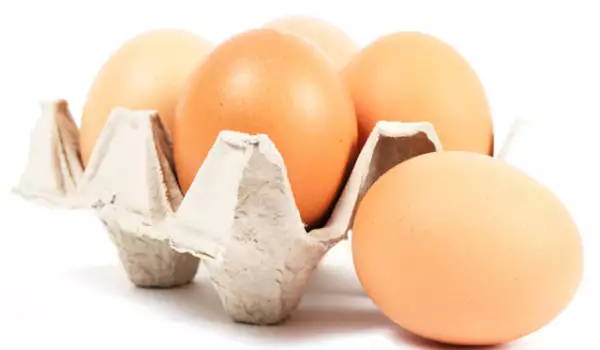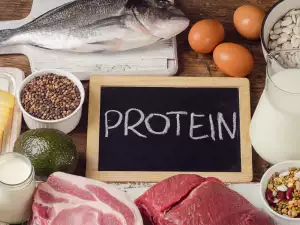Eggs are sometimes notorious for their low cholesterol content and for being among the foods that often lead to food allergies. Those can also be caused by peanuts, fish, nuts, mussels, milk and soy.
However, eggs offer high nutritional value with 13 vitamins and minerals, high-quality easily digestible protein, healthy unsaturated fats and antioxidants, all for less than 100 calories.
Nutritional facts
One large peeled egg contains 6 grams of protein. Of this protein, 3 grams are contained in the egg yolk and 3 grams in the egg white.

Additional information on the nutritional value of a large egg without a shell includes 75 g of water, 80 calories, 6 grams of fat, 274 mg of cholesterol in the yolk, 1 g of carbohydrates, 28 mg of calcium, 90 mg of phosphorus, 1 gram of iron, 65 mg of potassium, 69 mg sodium, 55 mg zinc, 260 IU vitamin A, 0.04 mg thiamine, riboflavin 0.15 mg, traces of niacin, 0 mg ascorbic acid and 24 mg folic acid.
Risks of egg yolk consumption
People on a strict low cholesterol diet should limit the use of egg yolk.

Food manufacturers and most supermarkets offer several fat-free without cholesterol egg substitutes. For many people, limiting saturated fats is more effective at lowering blood cholesterol than lowering the cholesterol.
To prevent foodborne illnesses, use eggs with clean and intact shells. Cook the eggs until the egg whites harden and the yolk begins to thicken.
Even pasteurized eggs should not be eaten raw. Raw eggs are often found in Caesar salad dressings, cocktails, sauce Hollandaise and lemon pie.
Benefits of eating egg yolks
Eggs are a valuable source of protein and are a cheap ingredient in cooking. Protein helps a person feel full for a longer time and helps maintain a healthy weight.
Egg yolks provide a good source of choline, which contributes to the development of the fetal brain and serves to prevent birth defects.
Choline also helps adults by maintaining the structure of the brain membranes of cells and the transmission of nerve impulses to the muscles.
Lutein and zeaxanthin are antioxidants in egg yolk that help prevent macular degeneration, age-related blindness.




















Comments